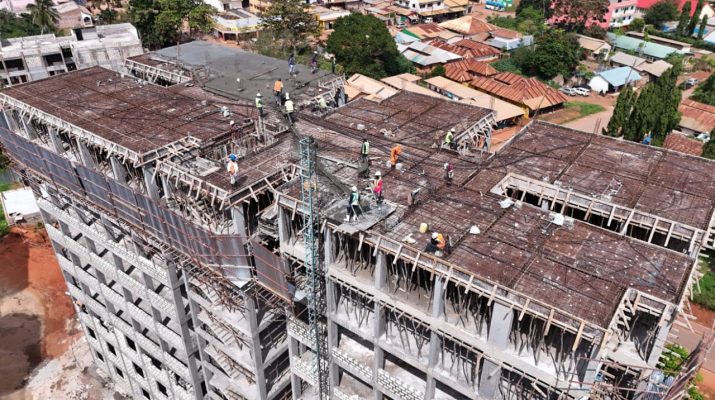By Angela Kibara
The Matuga Affordable Housing Project in Kwale County is making significant headway, with construction now at 38% completion.
In a recent social media post, Principal Secretary for Internal Security and National Administration, Dr. Raymond Omollo, stated that the project, a landmark of the government’s Bottom-Up Economic Transformation Agenda (BETA), is on track to be fully completed by December 2025.
This rapid progress is a visible sign of the government’s steadfast commitment to its mandate of delivering on key development promises and infrastructure across the country, particularly in under-resourced regions.
Dr. Omollo detailed the project’s rapid progress, which includes major construction milestones such as the recent slab casting on the ninth floor of Block B. Ongoing walling and plastering signal the advanced state of the residential towers, while work has also commenced on the project’s commercial block.
The PS added that, upon completion, the development will transform the local landscape with two modern residential buildings, Block A (G+9) and Block B (G+10), featuring lift-accessible units, as well as a commercial wing with 18 shops, a kindergarten, and other social amenities.
He further highlighted the project’s profound impact on the local populace, particularly its role in empowerment and job creation.
“The project has directly employed 128 workers, 70% from the local community, empowering youth and women with income and skills,” he wrote.
This local recruitment strategy ensures that the economic benefits of the project create a tangible and immediate impact, providing a crucial boost to household incomes and fostering new career pathways.
Dr. Omollo affirmed the government’s commitment to its BETA agenda, aiming to build a more inclusive and equitable economy. The project stands as a powerful testament to the government’s strategy for grassroots economic transformation in Kwale County and beyond.
It demonstrates a practical and scalable model for how public projects can not only provide essential infrastructure but also act as a vital engine for community development, personal empowerment, and sustainable growth.

